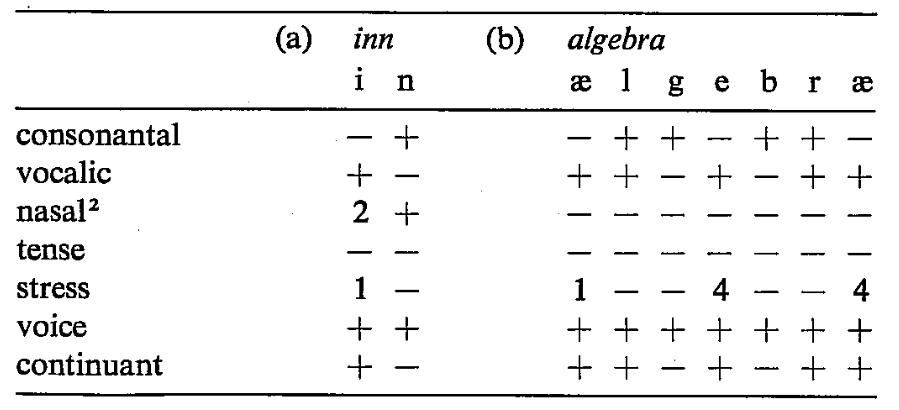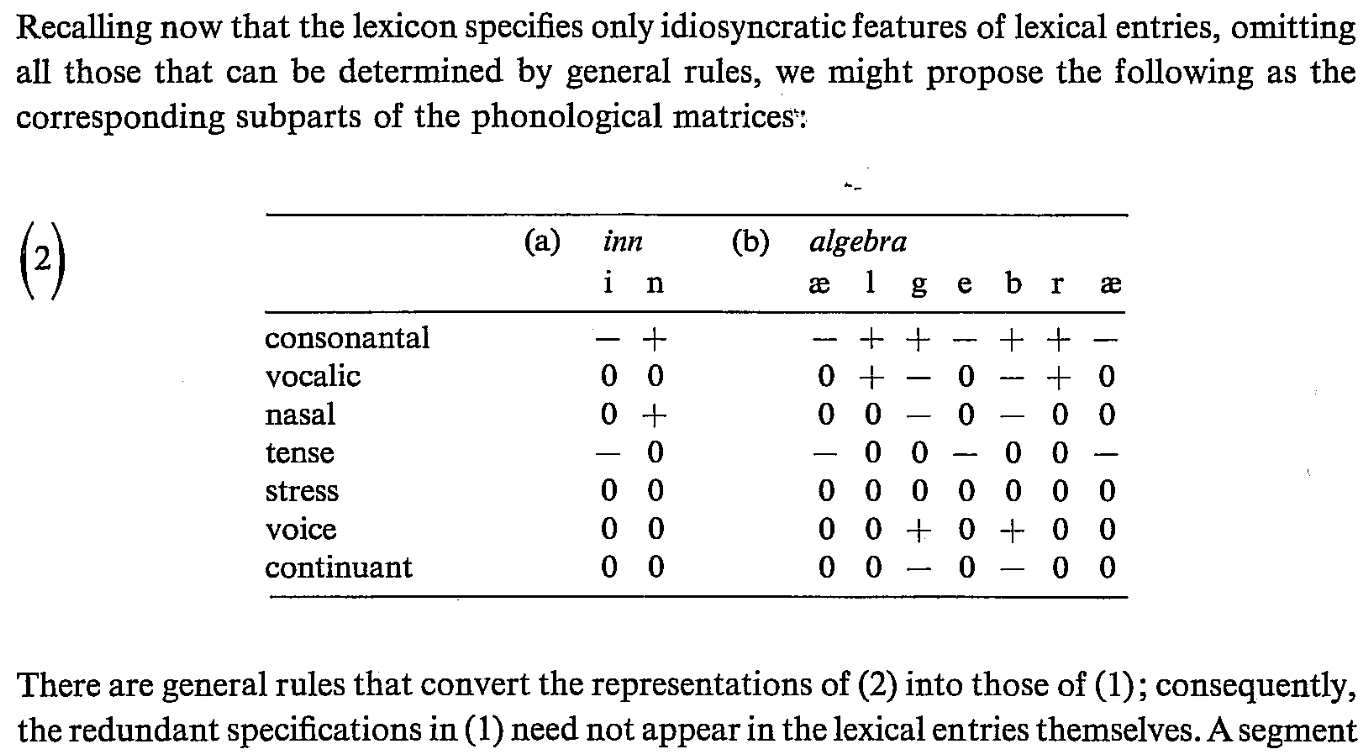Anderson, Stephen R. 2000. Reflections on
“On the phonetic rules of Russian.” Folia Linguistica 34(1–2). 11–28. doi:
10.1515/flin.2000.34.1-2.11.
Bloch, Bernard. 1941. Phonemic overlapping.
American Speech 16(4). 278–284. doi:
10.2307/486567.
Chomsky, Noam & Morris Halle. 1968. The sound pattern of English. New York: Harper; Row.
Hall, Daniel Currie. 2007. The role and representation of contrast in phonological theory. Toronto: University of Toronto PhD thesis.
Halle, Morris. 1959. The sound pattern of Russian: A linguistic and acoustical investigation. ’s Gravenhage: Mouton.
Jakobson, Roman, Gunnar Fant & Morris Halle. 1951. Preliminaries to speech analysis. Cambridge, MA: MIT Press.
Kiparsky, Paul. 1985. Some consequences of Lexical Phonology. Phonology Yearbook 2. 85–138.
Trubetzkoy, Nikolai S. 1939. Grundzüge der Phonologie (Travaux Du Cercle Linguistique de Prague 7). Prague.

